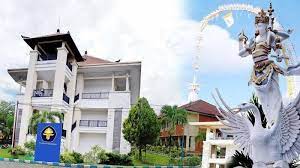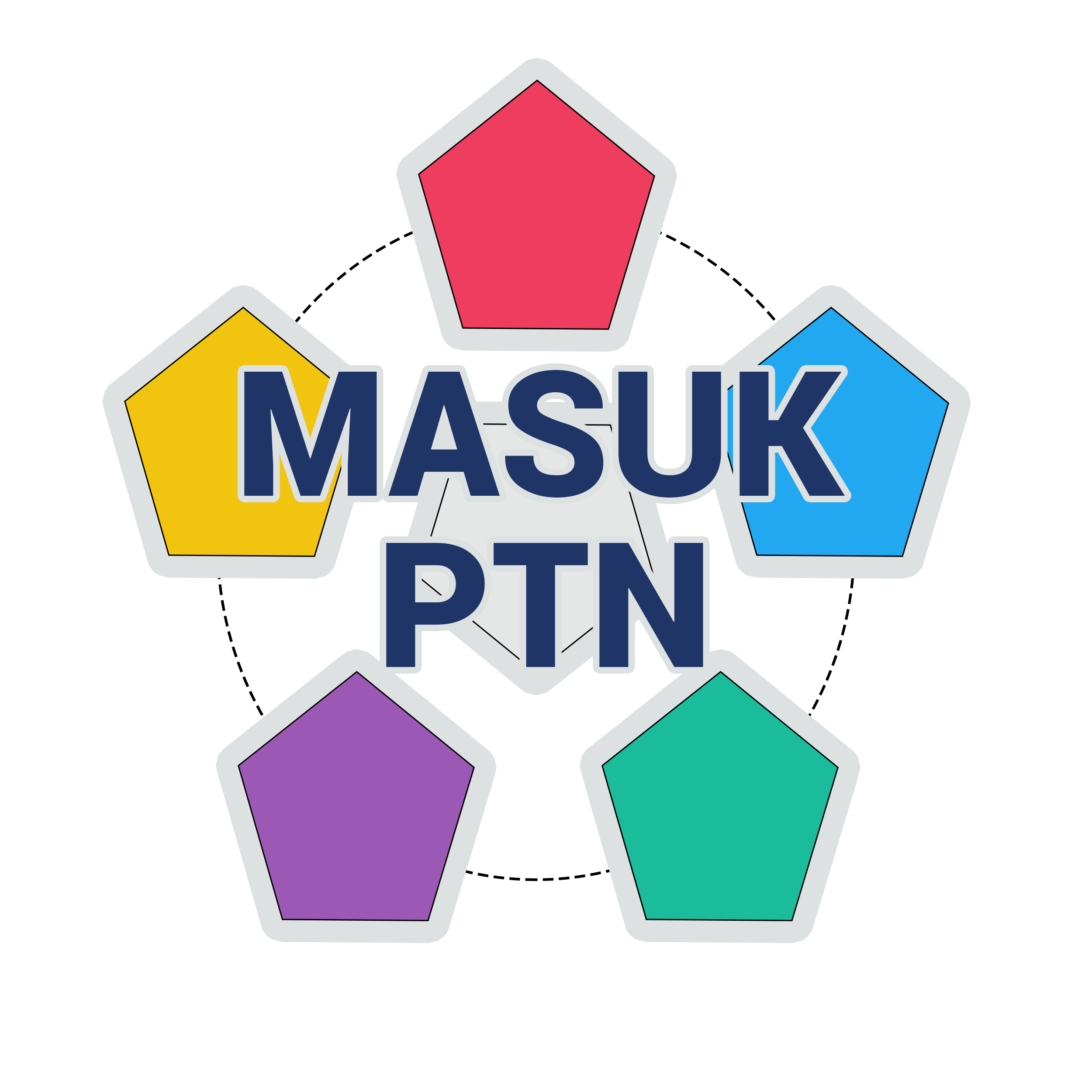- Visi Jurusan Pariwisata
Menjadi Jurusan sebagai pendidikan tinggi vokasi yang menghasilkan lulusan profesional berdaya saing Internasional pada bidang pariwisata tahun 2025.
- Misi Jurusan Pariwisata
Dari visi yang telah dirumuskan di atas ditetapkan 7 (tujuh) misi Jurusan Pariwisata sebagai berikut:
- Menyelenggarakan pendidikan vokasi yang berkualitas pada bidang Pariwisata serta dapat diakses secara merata dan setara bagi masyarakat
- Menghasilkan lulusan pada bidang pariwisata yang kompeten, mandiri, inovatif, adaptif, dan mampu bersaing pada tingkat lokal, nasional, dan regional Asia Pasifik tahun 2019 dan internasional tahun 2025.
- Menghasilkan lulusan yang handal serta beretika, dalam bidang Pariwisata yang berorientasi pada kebutuhan pasar dan berjiwa wirausaha.
- Menyelenggarakan penelitian terapan dan pengabdian pada masyarakat dalam bidang Pariwisata.
- Memperluas jaringan kerjasama dengan pemerintah, industri, Perguruan Tinggi lain, asosiasi dan alumni.
- Mengembangkan suasana akademik yang kondusif untuk meningkatkan produktivitas dan kualitas kerja pada program studi.
- Mengembangkan manajemen jurusan sebagai bagian dari Jurusan Pariwisata dan Politeknik Negeri Bali yang efisien, efektif, transparan dan akuntabel
- Tujuan Strategis Jurusan Pariwisata
Jurusan Pariwisata sebagai salah satu lembaga pendidikan tinggi vokasi memiliki tujuan, sebagai berikut :
- Memberikan kesempatan yang luas dan setara bagi masyarakat untuk meningkatkan pendidikan pada bidang
- Memenuhi kebutuhan tenaga kerja di industri pada bidang
- Menyiapkan tenaga kerja yang kompeten dan memiliki daya saing regional Asia-Pasifik tahun 2019 dan internasional tahun 2025.
- Menyiapkan tenaga kerja yang berdedikasi tinggi dan berjiwa wirausaha.
- Menyelenggarakan penelitian terapan dan pengabdian pada masyarakat dalam bidang Pariwisata untuk dapat meningkatkan kesejahteraan masyarakat.
- Meningkatkan kuantitas dan kualitas kerjasama dengan pemerintah, industri, Perguruan Tinggi lain, asosiasi dan alumni.
- Meningkatkan lingkungan akademik dan suasana kerja yang kondusif untuk dapat meningkat produktivitas dan kualitas kerja civitas akademika program studi.
- Mewujudkan manajemen jurusan yang efisien, efektif, transparan dan akuntabel sesuai dengan tuntutan jaman
DESCRIPTION OF LEARNING OUTCOMES APPLIED MASTER PROGRAM IN TOURISM BUSINESS PLANNING STUDY PROGRAMME
Based on the Indonesian National Qualifications Framework, the educational learning outcomes of the study program at level 8 and have 4 elements of description of learning outcomes, namely attitudes, mastery of knowledge, general skills, and specific skills as follows:
- Attitude
- Being devoted to God Almighty and able to show a religious attitude
- Upholding human values in carrying out duties based on religion, morals and ethics
- Contributing to improving the quality of life in society, nation, state, and advancement of civilization based on Pancasila
- Acting as citizens who are proud and love the country, have nationalism and a sense of responsibility to the state and nation
- Respect the diversity of cultures, views, religions and beliefs, as well as the original opinions or findings of others
- Cooperate and have social sensitivity and concern for society and the environment
- Obeying the law and discipline in public and state life
- Internalizing academic values, norms, and ethics
- Demonstrate an attitude of responsibility for work in their field of expertise independently
- Internalizing the spirit of independence, struggle and entrepreneurship
- Demonstrate a trustworthy (integrity), responsive, professional attitude in accordance with the Global Code of Ethics of Tourism with an Indonesian personality
- Mastery of knowledge
- Mastering applied theory and theory by conducting analysis, integration, synthesis, and innovation in tourism planning and development in the fields of hospitality, travel, destinations and events
- Mastering the theory and applied theory of policymaking and evaluation (policy) as well as public regulations in the tourism sector
- Mastering applied theories and theories of tourism business strategic management
- Mastering the theory and applied theory of green tourism which includes ecological, economic and socio-cultural sustainability
- Mastering applied theories and theories in the field of strategic marketing and tourism communication, mastery of factual and theoretical concepts on tourism policy, tourism economy and international tourism
- Mastering the theory and applied theory of business organization networks, public organizations, community organizations, and corporate communications in the field of tourism
- Mastering applied research methodology in tourism
- General skill
- Able to develop logical, critical, systematic, and creative thinking through scientific research, creation of designs or works of art in the field of science and technology that pay attention to and apply humanities values in accordance with their areas of expertise, compile scientific conceptions and study results based on rules, procedures, and scientific ethics in the form of a thesis or other equivalent form, and uploaded on the college website, as well as papers that have been published in accredited scientific journals or are accepted in international journals
- Able to carry out academic validation or studies according to their field of expertise in solving problems in the relevant community or industry through the development of their knowledge and expertise
- Able to compile ideas, thoughts, and scientific arguments responsibly and based on academic ethics, and communicate them through the media to the academic community and the wider community
- Able to identify the scientific field that is the object of his research and position it on a research map developed through an interdisciplinary or multidisciplinary approach
- Able to make decisions in the context of solving problems in the development of science and technology that pay attention to and apply humanities values based on analytical or experimental studies of information and data
- Able to manage, develop and maintain networks with colleagues, peers within the wider research institution and community
- Able to increase learning capacity independently
- Able to document, store, secure, and recover research data in order to ensure validity and prevent plagiarism
- Specific skill
- Have the ability to innovate in planning and developing green tourism in the fields of hospitality, travel, destinations, and events and MICE
- In the domain of tourism planning and development, it has the ability to design regulations and planning strategies and development of green tourism based on:
- evaluation of the competitiveness of national tourism in various tourism industry practices
- evaluation of the behavior of key stakeholders in the process of drafting tourism regulations and strategies
- integration of concepts from various disciplines covering economics, management, socio-culture, and the environment
- community development, local wisdom and socio-culture
- the latest technological developments
- In the domain of the initiation of new green tourism business at the strategic level of a business unit, it has the ability to:
- Designing a strategic tourism business model based on principles, procedures, scientific ethics and an analysis of the environment of regional and global competition and changes in various tourism practices
- Formulating strategic business decisions in order to improve tourism performance
- Developing alternative solutions to problems in regulating the tourism industry practices by using an integrated strategic analysis
- Formulate a regulation to accelerate the growth of the tourism business based on local potential and wisdom as well as economic, socio-cultural and environmental conditions
- Formulating recommendations in accordance with the principles of green tourism
- In the domain of professional development of green tourism service providers for the strategic level of a business unit, it has the ability to:
- Build human resources which include:
- Management system: leadership, team dynamic based teamwork, and the ability to handle conflicts at work
- Recruitment system: placement, promotion, transfer and dismissal of employees in tourism organizations based on applicable labor regulations, the principles of effectiveness, efficiency and fairness
- Performance appraisal system: determining the scope and performance targets, strategies, cycles, programs, activities in performance measurement, as well as feedback mechanisms for improving overall organizational performance
- Training system: determining the scope and targets of training, strategies, cycles, programs, activities, and evaluation of training results in the short and long term
- Build a marketing strategy that includes:
- development of the marketing mix of the products and services offered
- formulation of alternative solutions to marketing problems faced, especially in terms of effectiveness and marketing practices imposed by the organization
Learning outcomes contained in the curriculum of the Applied Master Program in Tourism Business Planning Study Program are reviewed and validated by the Professional Advisory Board (PAB). The curriculum is evaluated periodically every 4-5 years through an evaluation process involving stakeholders (government, industry, academic, media, and society). Curriculum evaluation is carried out by considering the suitability of graduate competencies with user needs, the suitability of science and technology developments, and changes in regulations in the higher education sector. Curriculum evaluation followed by revision of learning tools (RPS and Module). Since the last accreditation (BAN PT) on July 13, 2021, there has been no change in the structure of the curriculum, but there have been adjustments to the learning method by blended learning, namely using online and offline methods.
Profile of graduates of the Applied Master Program in Tourism Business Planning Study Program have managerial abilities, study, analyze, synthesize, design, implement, monitor, evaluate and make tourism business decisions, especially green tourism in accordance with the intersectoral and inter-regional development planning system based on conditions and long-term carrying capacity that have benefits for the environment, society and culture, and the tourism business itself by observing the global tourism code of ethics. Tourism referred to in general covers four major areas: (a) hospitality (b) travel business (c) tourist destinations and attractions; (d) MICE (meetings, incentives, conventions, exhibitions) and events. The professions or types of work in the graduate’s profile are: (1) company leader (manager) in the tourism industry; (2) academics and researchers in tourism applied science; (3) entrepreneurs and tourism bureaucrats.

 MASUK PTN
MASUK PTN